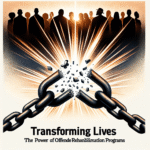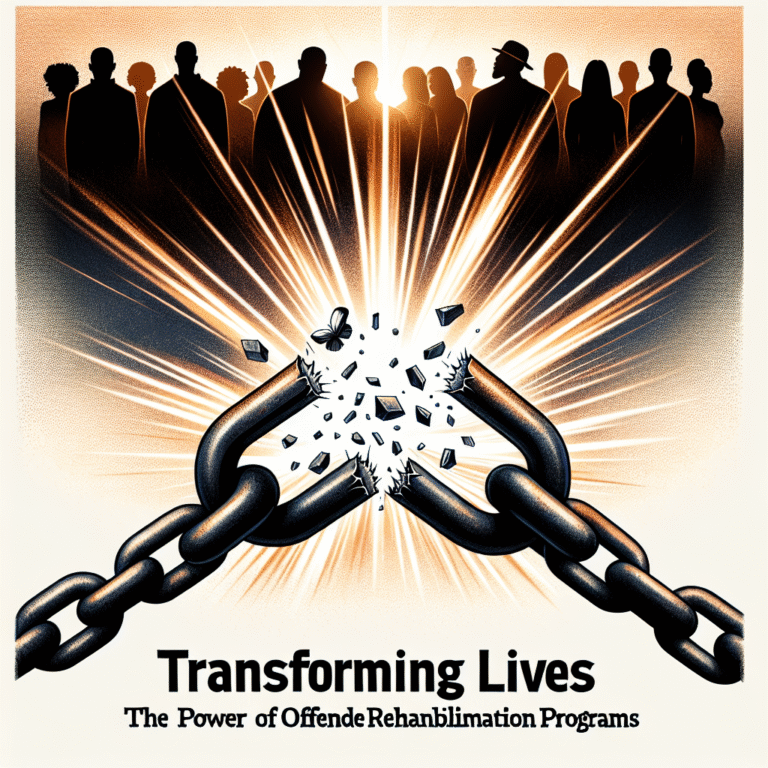
Introduction
In a world where substance abuse continues to impact individuals, families, and communities at an alarming rate, understanding the tools and processes that facilitate recovery is crucial. One such tool, often underestimated in its importance, is the substance abuse evaluation. But what is the real impact of substance abuse evaluations on long-term recovery success? The answer to this question can reshape how we approach recovery and support those in need.
Substance abuse evaluations serve as a vital blueprint, helping healthcare professionals identify an individual’s specific needs, guiding treatment options, and ultimately paving the way for long-lasting recovery. This article delves deep into how these evaluations can significantly influence the trajectory of recovery, offering powerful insights, real-world case studies, and tangible strategies for achieving success.
Understanding Substance Abuse Evaluations
What is a Substance Abuse Evaluation?
A substance abuse evaluation is a formal assessment used to determine the extent of an individual’s substance use and the impact it has on their life. This process includes interviews, questionnaires, and sometimes physical examinations. The primary goal is to establish a clear understanding of an individual’s substance use history, mental health status, and any potential co-occurring disorders.
Why Are Evaluations Important?
The impact of substance abuse evaluations on long-term recovery success lies in their role as a foundational element in the treatment planning process. By accurately identifying an individual’s requirements, focus, and potential barriers to recovery, care providers can create a personalized treatment path. A well-structured evaluation can also help recognize underlying issues such as trauma, depression, or anxiety, allowing for a more holistic approach.
Case Studies That Illustrate the Importance of Evaluations
Case Study 1: Sarah’s Journey
Sarah, a 32-year-old woman with a history of alcohol dependency, entered a treatment facility after years of reluctance. Upon her arrival, she underwent a substance abuse evaluation, which revealed that her drinking was not just a coping mechanism for stress, but a symptom of deeper-rooted trauma.
Analysis
Through targeted therapy, Sarah was able to process her trauma, which significantly enhanced her long-term recovery. This case underscores the profound impact of substance abuse evaluations on long-term recovery success by highlighting the necessity of recognizing the underlying issues that contribute to substance misuse.
Case Study 2: Mike’s Path to Rehabilitation
Mike, a 45-year-old former military veteran grappling with opioid addiction, faced various challenges due to PTSD. His evaluation focused on both his substance use and his mental health condition.
Analysis
By addressing Mike’s PTSD alongside his addiction, healthcare workers tailored an integrated treatment plan that contributed to his recovery. This scenario illustrates how a comprehensive evaluation directly correlates with effective treatment strategies, emphasizing the significant impact of substance abuse evaluations on long-term recovery success.
Key Components of Effective Substance Abuse Evaluations
Comprehensive Assessments
An effective evaluation generally involves multiple components:
- Clinical Interviews: One-on-one conversations to capture the individual’s history and current substance use patterns.
- Standardized Questionnaires: Tools designed to quantify addiction severity and related behaviors.
- Physical and Psychological Assessments: Evaluating overall health to identify any co-occurring disorders.
Multidimensional Approach
Evaluators must consider various dimensions, including psychological, social, and environmental factors. Only by adopting a multidimensional approach can evaluators truly understand an individual’s challenges and needs. This comprehensive outlook has a notable impact on the success of long-term recovery.
The Role of Evaluations in Treatment Planning
Tailored Treatment Plans
The crux of the impact of substance abuse evaluations on long-term recovery success is the customization of treatment plans. Armed with detailed insights from evaluations, clinicians can devise strategies that address specific issues, rather than relying on a one-size-fits-all model.
Ongoing Monitoring and Assessment
Recovery is seldom a linear journey; therefore, evaluations also play a critical role in ongoing monitoring. Regular assessments allow for adjusting treatment plans based on progress and emerging needs, thus supporting sustainable recovery over time.
Example Table: Benefits of Tailored Treatment Plans
| Benefit | Description |
|---|---|
| Personalized Care | Addresses unique challenges specific to the individual |
| Increased Engagement | Patients are more likely to follow through with a plan tailored to them |
| Enhanced Motivation | Clear goals set during evaluations increase motivation |
| Better Outcomes | Studies indicate higher recovery rates with personalized approaches |
The Psychological Impact of Substance Abuse Evaluations
Building Trust Between Patients and Professionals
Trust is a crucial element in the therapeutic relationship. A well-conducted evaluation can set the tone for a patient’s openness and willingness to engage in treatment. The evaluation process is the first step in creating a partnership that encourages healing, emphasizing the impact of substance abuse evaluations on long-term recovery success.
Empowerment Through Knowledge
Patients often feel empowered when they gain insights through evaluations about their substance use patterns. This knowledge can motivate individuals to take responsibility for their recovery journey, further solidifying the importance of evaluations in achieving long-term success.
Overcoming Barriers with Effective Evaluations
Addressing Stigma
One significant barrier to recovery is the stigma associated with substance abuse. Comprehensive evaluations can help normalize the conversation around addiction, reinforcing that seeking help is a strength rather than a weakness.
Identifying Co-Occurring Disorders
Many individuals battling substance abuse issues also struggle with mental health disorders. Through thorough evaluations, healthcare providers can identify co-occurring conditions and address them simultaneously—highlighting the extensive impact of substance abuse evaluations on long-term recovery success.
Conclusion
The path to recovery is a complex journey, often intertwined with various personal and societal factors. Understanding the impact of substance abuse evaluations on long-term recovery success is vital for anyone involved in the treatment process. These evaluations do not merely serve as a diagnostic tool; they lay the foundation for personalized treatment, build trust, and create pathways for meaningful engagement.
As we continue to unravel the layers of substance abuse and recovery, let us empower those in need by advocating for thorough evaluations and supporting tailored treatment plans. The ripple effect of this impact goes beyond the individual—it touches families, communities, and ultimately, society at large.
FAQs
1. What does a substance abuse evaluation typically entail?
A substance abuse evaluation usually includes a clinical interview, standardized questionnaires, and potentially a physical and psychological assessment.
2. How can evaluations improve treatment outcomes?
Evaluations provide crucial insights into an individual’s history and needs, allowing for the development of customized treatment strategies that can lead to higher success rates.
3. What are common misconceptions about substance abuse evaluations?
Many believe evaluations are solely for diagnosis. However, they also serve as a roadmap for ongoing treatment and support.
4. Can substance abuse evaluations help with co-occurring disorders?
Yes, comprehensive evaluations often identify co-occurring mental health issues, enabling a more integrated treatment approach.
5. How often should substance abuse evaluations be conducted during recovery?
Regular evaluations are recommended, especially when individuals face challenges or when their treatment needs change, to ensure ongoing success in recovery.
The impact of substance abuse evaluations on long-term recovery success is powerful and profound. By prioritizing these evaluations as part of a holistic approach to treatment, we can cultivate a supportive environment where recovery is not just hoped for but achieved.

















